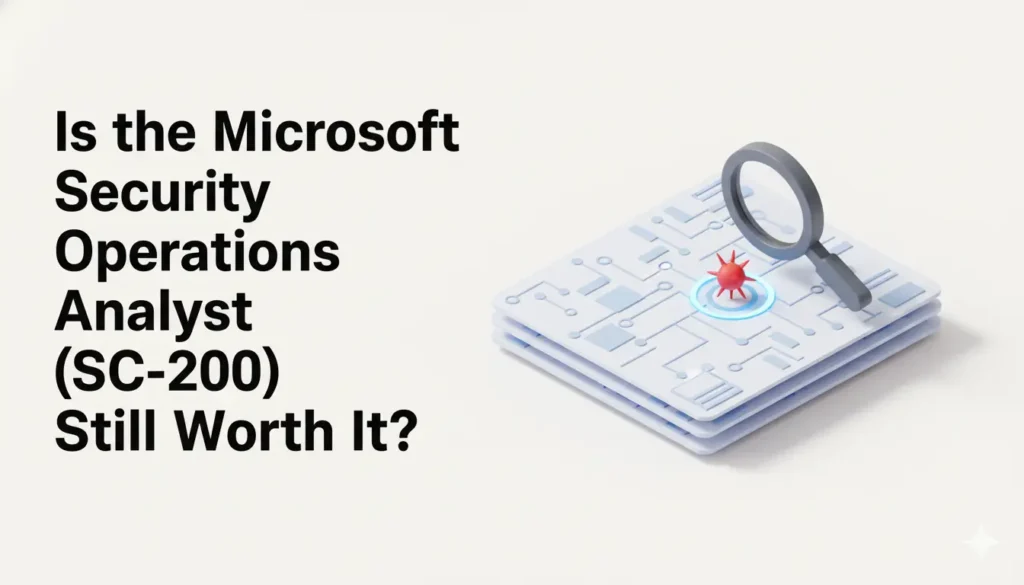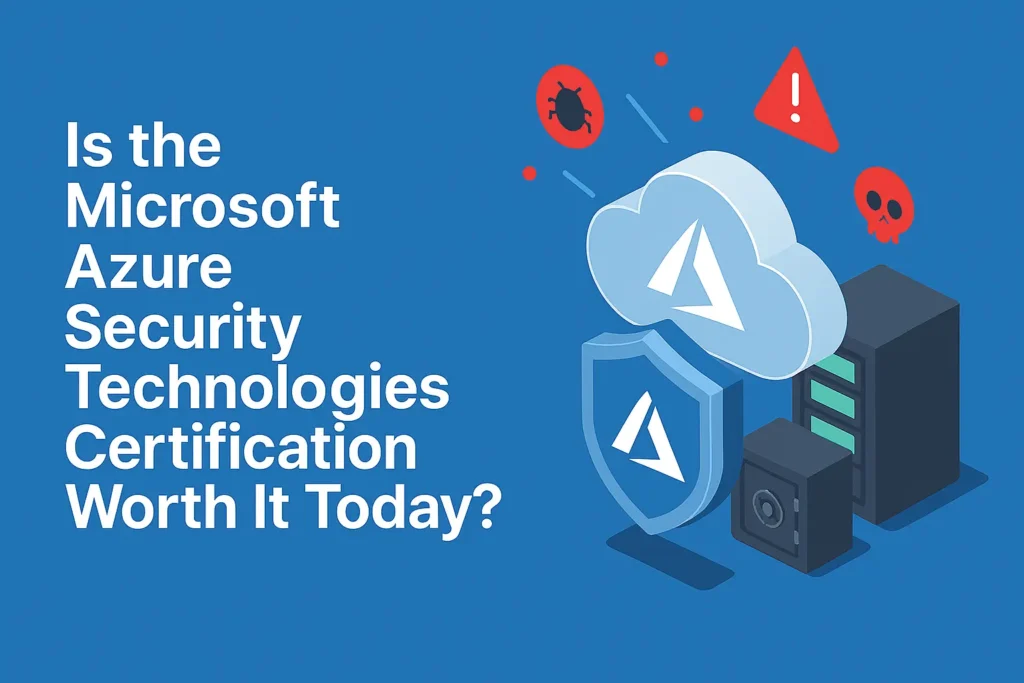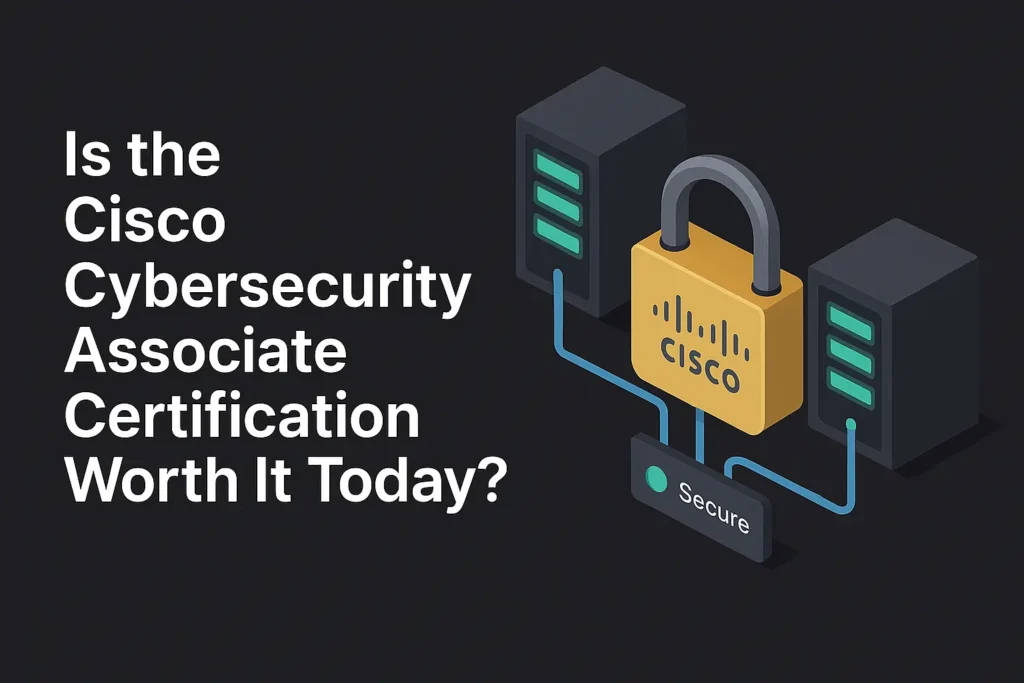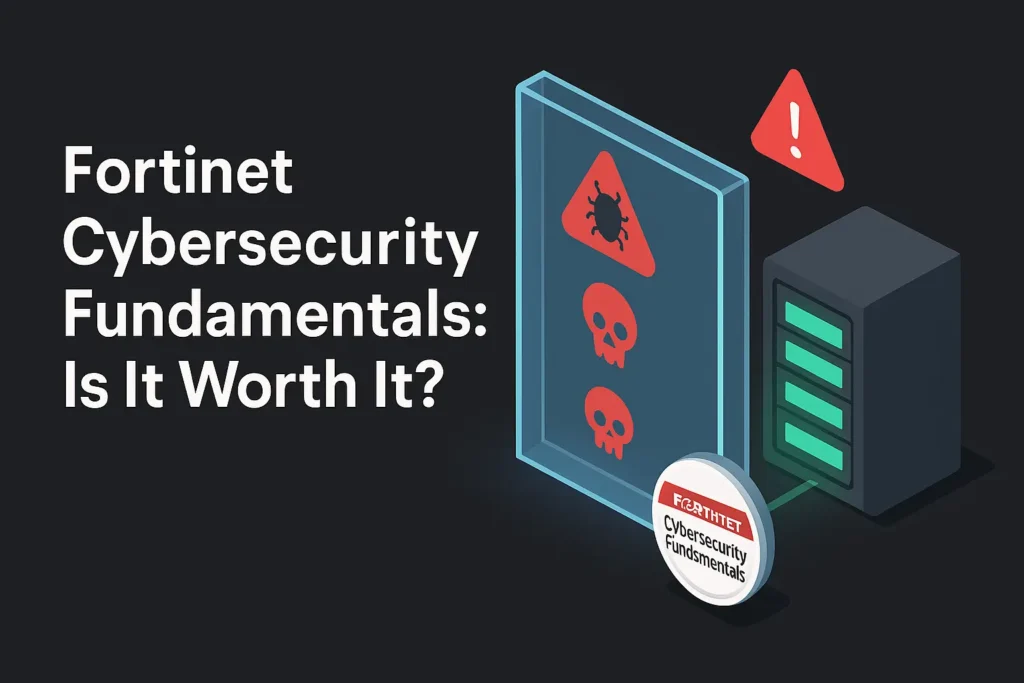What is the Fortinet Cybersecurity Fundamentals Certification?
The Fortinet Cybersecurity Fundamentals Certification (formerly Fortinet Certified Fundamentals—FCF) is an entry-level credential in Fortinet’s NSE 1–2. It validates your understanding of:
- The modern threat landscape (NSE 1)
- Basic technical cybersecurity concepts (NSE 2)
To earn the certification, candidates must complete the “Introduction to the Threat Landscape” course and one elective: “Getting Started in Cybersecurity” (for non-technical roles), or “Technical Introduction to Cybersecurity” (for technical roles).
Why Is the Fortinet Cybersecurity Fundamentals Certification So Popular?
- Free and accessible training – Fortinet provides no-cost, self-paced courses covering core cybersecurity fundamentals.
- Strong vendor backing – Fortinet has awarded over 1.8 million certifications through its NSE programme.
- Industry relevance – Essential cybersecurity knowledge is now a baseline requirement for many entry-level IT and security roles.
- Career foundations – A stepping stone to other Fortinet (NSE 3–4) and broader vendor certifications.
Is the Fortinet Cybersecurity Fundamentals Certification Worth It Today?
Absolutely. Here’s why:
- Affordability and ease of access – Training and exams are free.
- Clear entry-level path – A structured foundation for career progression in cybersecurity.
- Vendor neutrality at the basics level – While Fortinet-branded, the basics taught are universally applicable in cybersecurity.
- Solid stepping stone – Opens the path to more advanced NSE certifications and roles.
Pros of Fortinet Cybersecurity Fundamentals Certification
✅ Job Availability
- Cybersecurity roles are projected to grow by 21% in Australia by 2026, highlighting strong demand.
- Entry-level cybersecurity skills are desired across sectors like finance, healthcare, government and tech.
💰 Salary Potential
- Entry-level cybersecurity professionals in Australia earn between AUD 70,000 and AUD 135,000.
- Globally, Fortinet cybersecurity analysts achieve total compensation averaging ~USD 130,000.
🌐 Global Recognition
- Fortinet’s NSE programme has 1.8 million certified professionals worldwide.
- Digital badges (NSE 1–2) are validated across platforms and partners.
🛤 Career Pathways
- Certification aligns with pathway into NSE 3 (Associate), NSE 4–5 (Professional), NSE 6–7 (Specialist), NSE 8 (Expert) roles.
- Use it to pivot from general IT into security-focused roles like cybersecurity analyst, network engineer, or SOC operator.
Cons of Fortinet Cybersecurity Fundamentals Certification
💸 Cost Considerations
- Courses and exams are free, but advanced Fortinet certifications (NSE 4+ vouchers) cost USD 200–400 apiece.
- Additional training providers may incur fees; budget accordingly.
🌐 Evolving Industry Demands
- AI, cloud security, zero-trust, quantum encryption demand continuous learning.
- Staying relevant requires ongoing upskilling beyond foundational certification.
🔧 Certification Difficulty
- FCF is basic, but success requires grasping technical topics clearly.
- Advanced levels like NSE 4 require deeper technical practice and understanding concepts thoroughly.
Where to Begin for Your Fortinet Cybersecurity Fundamentals Certification
- Enrol in Fortinet’s free self-paced training via Training Institute.
- Complete the core course Introduction to the Threat Landscape (NSE 1).
- Choose your elective based on role:
- Getting Started in Cybersecurity – for non-technical roles
- Technical Introduction to Cybersecurity – for IT professionals (NSE 2)
- Pass the quizzes/exams at course ends.
- Earn digital badges and certification (valid for 2 years).
Key Topics Covered in Fortinet Cybersecurity Fundamentals
- Threat landscape awareness – classes of attackers, threat vectors
- Network security principles – firewalls, VPNs, IDS/IPS
- Endpoint protection – malware defences, antivirus basics
- Access control – authentication, authorisation, MFA
- Security operations – logging, monitoring, incident response
- Basic cloud security – introductory concepts (depending on elective)
FAQ Section
Is it enough to get a job?
For entry-level roles in tech support, junior SOC or technician roles—yes. For advanced cybersecurity or Fortinet-specific roles, you’ll need NSE 3+ and domain experience.
Is it worth it in Australia?
Yes—strong local demand for cybersecurity and networking roles reinforces the value of vendor-recognised certifications.
Does it pay well?
Entry-level salary AUD 70k–135k; higher if coupled with advanced certs and technical experience.
Is it difficult?
Moderate. You need to thoroughly understand the basics. The technical elective (NSE 2) is more challenging than the non-tech option.
Is it stressful?
Stress is low compared to full proctored exams. It’s self-paced and online, designed for beginners.
How many fail?
Exact failure rates aren’t published. But because the exams are self-paced and accessible, retakes are straightforward—preparation is key.
The Future of Networking Jobs in Australia
- IT spending in Australia set to reach AUD 146.85 billion in 2025 – a growth of 8.7%.
- Roles for network and security professionals are projected to grow over 20%.
- Roles like database & ICT security specialists projected to grow 14.2% from 2024–2029.
- Cybersecurity workforce needed aligns with government investment of AUD 1.67 billion.




